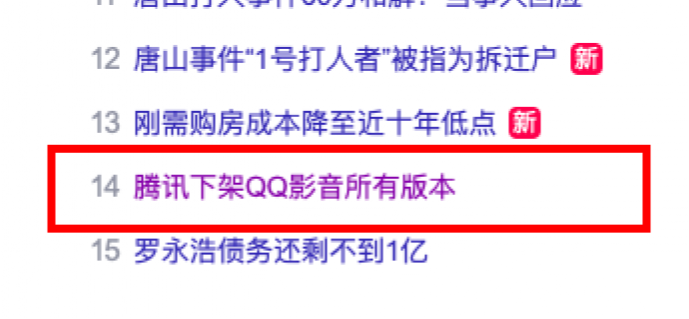Cultivate artificial intelligence law talents with "field theory"
Author:China Social Sciences Network Time:2022.06.21
In October 2018, the Ministry of Education issued the "Opinions on Accelerating the Construction of High -level Undergraduate Education to Comprehensively Improve Talent Training Capability", and decided to implement the "Six Excellence and One Topping" Plan 2.0 ", and the concept of" new liberal arts "also officially surfaced. After two years of pilot and practice, the New Literature Construction Working Group of the Ministry of Education held a "New Liberal Arts Construction Work Conference" in November 2020 and officially issued the "New Liberal Arts Construction Declaration" to systematically deploy the new liberal arts construction. While consolidating the construction of basic disciplines of humanities and social sciences, the construction of new liberal arts construction is about the development trend of a new round of scientific and technological revolution and industrial reform, and the frontier information technology such as big data and artificial intelligence will be further integrated into the original liberal arts system. Therefore, in terms of discipline span, one of the prominent features of new liberal arts is to emphasize the large -scale cross and large integration between liberal arts, literature, literature, and literary medicine.
As an emerging professional direction of the deep cross -integration of law and artificial intelligence, artificial intelligence law has become one of the most important growth points in the field of law in the field of law. In recent years, Tsinghua University, Peking University, Zhejiang University, Renmin University of China, Shanghai Jiaotong University, Jilin University, Sichuan University, China University of Political Science and Law, Southwest University of Political Science and Law, East China University of Political Science and Law, and Southeast University surround artificial intelligence law and Its similar disciplines (such as algorithm and digital law) are actively explored and have achieved certain results. However, in the era of digital, the training of artificial intelligence law also faces three key issues: first, how to build teaching resources with the characteristics of "application -oriented, fast iterative speed, and high technical barriers" knowledge; second Teachers' teams of theoretical research, practical planning, and composite research and development capabilities; Third, how to create the implementation path of the integration of the theory, practice, and technology of the theory, practice, and technology.
The training of artificial intelligence law talents is not the general combination of the two disciplines of artificial intelligence and law, but to accelerate the construction of the discipline system from the special nature of the legal scene. On the one hand, compared with other fields such as finance and education, the legal field involves multiple key scenarios such as legislation, law enforcement, and judicial, and its demand for procedural guarantee and power constraints is high. This determines the application of artificial intelligence technology in the legal field, and it is necessary to consider special needs different from other fields. On the other hand, artificial intelligence technology empowering the legal field is not the "translation and use" of the intelligent technology in the legal field, but to fully consider the "field knowledge barriers" unique to the law. For example, when the natural semantic identification technology of the basic technology of big data is applied to the legal field, the general word division method and phrase cannot fully meet the professional needs of the legal field. Therefore, the "field theory" should be used as a "field theory" three -dimensional innovation artificial intelligence law training model. The so -called "field theory" is an artificial intelligence technology research and development, ethical norms and legal governance systems constructed in the unique field of law scenarios. Under the support of "domain theory", artificial intelligence law should take talents with the theory of cultivating Chinese experience with smart rule of law, proficient in the cutting -edge theory of the rule of law, practical dynamics of the rule of law, and the technical principles of the rule of law. Implementation paths should start to build a three -dimensional training model for artificial intelligence law.
First of all, in accordance with the overall thinking of the integration of "field curriculum -practical teaching", build an artificial intelligence law system that reflects the characteristics of the law of law in the field of law in the teaching resource system of artificial intelligence law and the introduction of legal knowledge diagrams. The elements of China's path and the advantages of the rule of law of the rule of law throughout the facts, and cultivate the Chinese experience, cutting -edge theory, practical dynamics, and technical principles of students' system of wisdom to rule the rule of law. On this basis, actively explore the joint construction of the "Laboratory -Workstation -Training Base" with the first -class enterprises and the informatization department of the relevant industries and the information department of political and legal organs to provide a practical teaching system support for the cultivation of the "field knowledge" of artificial intelligence law.
Secondly, the establishment of legal experts, computer experts, high -tech corporate R & D personnel, and the person in charge of the information of political and legal institutions closely cooperate, and have compound teachers teams with artificial intelligence theoretical research, practical planning, and prototype research and development capabilities in the legal field. Specifically, the construction of the teachers' team should be based on legal experts. Teachers of the School of Computer and Artificial Intelligence should jointly offer frontier courses. At the same time, the high -tech enterprise R & D personnel and the informatization of the judicial practice department are the person in charge of the information of off -campus.
Finally, follow the two -way implementation path of "scientific research and practice, teaching reform and teaching, competition and classroom", and drive artificial intelligence law training with scientific research, corporate development, and science and technology competitions. In short, major projects such as national key research and development plan projects should be used to empower students' intelligent and rule of law practices, and use the research on the research of new literature and science education reform to enhance the improvement of teaching quality, and actively organize teams and student teams to sharpen in legal artificial intelligence competitions Professional ability.
(Author Unit: Judicial Big Data Research Base of Southeast University Law School, Southeast University People's Court of Justice)
Source: China Social Science Network-Journal of Social Sciences of China
Author: Wang Lusheng
- END -
This player, all versions are removed!

Today, the news of all versions of#qq video#今 今 今 今 今 百 百 今 今 今 今 今 今...
How can I take a reflex picture everywhere?

For a good photo, the most important thing is the idea, but if you want to be real...